Water, Weather & Environment
Improving water quality monitoring
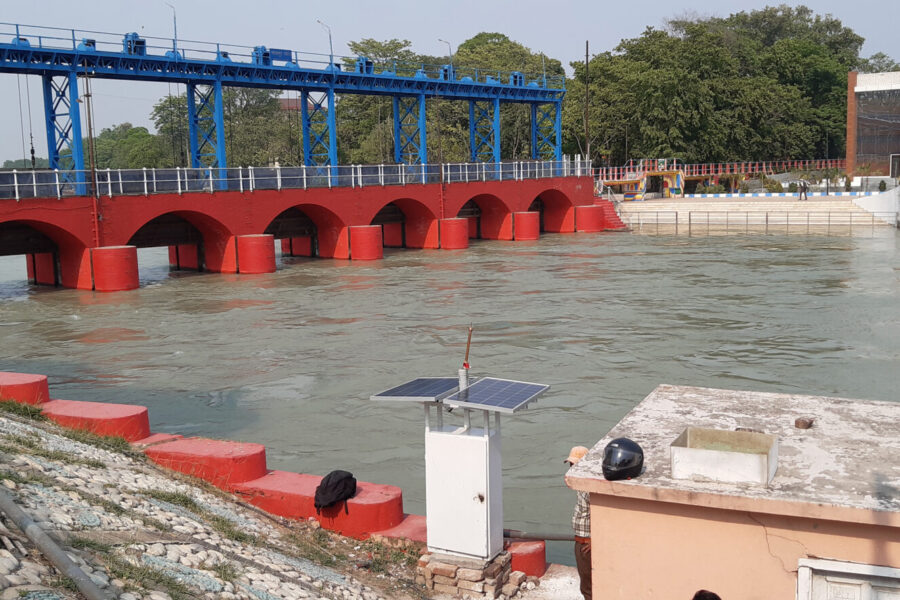
Developing and operating a validation system with the Central Pollution Control Board, Delhi, India.
We’re excited to share with you an ongoing project – a five-year journey that will provide invaluable lessons for our community. Following a six-month implementation phase that was completed in June 2022, the system will remain operational until mid-2027.
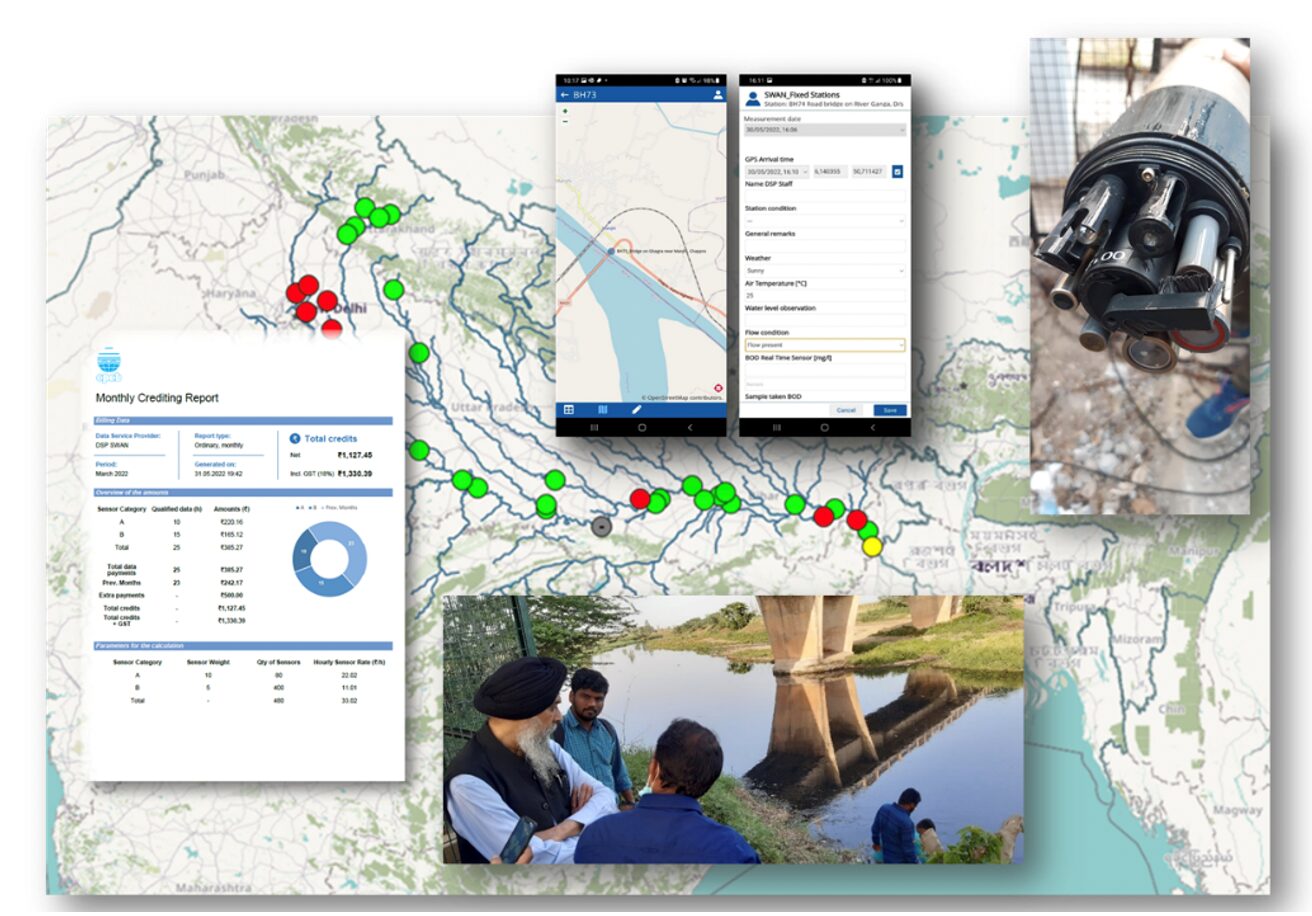
As we navigate through this endeavour, we’re reminded of the urgent need for proactive environmental stewardship and the use of advanced technology in water quality management. The project’s achievements to date underscore the urgency of our mission and its potential impact for generations to come.
Yours sincerely,
Dr Frank Schlaeger
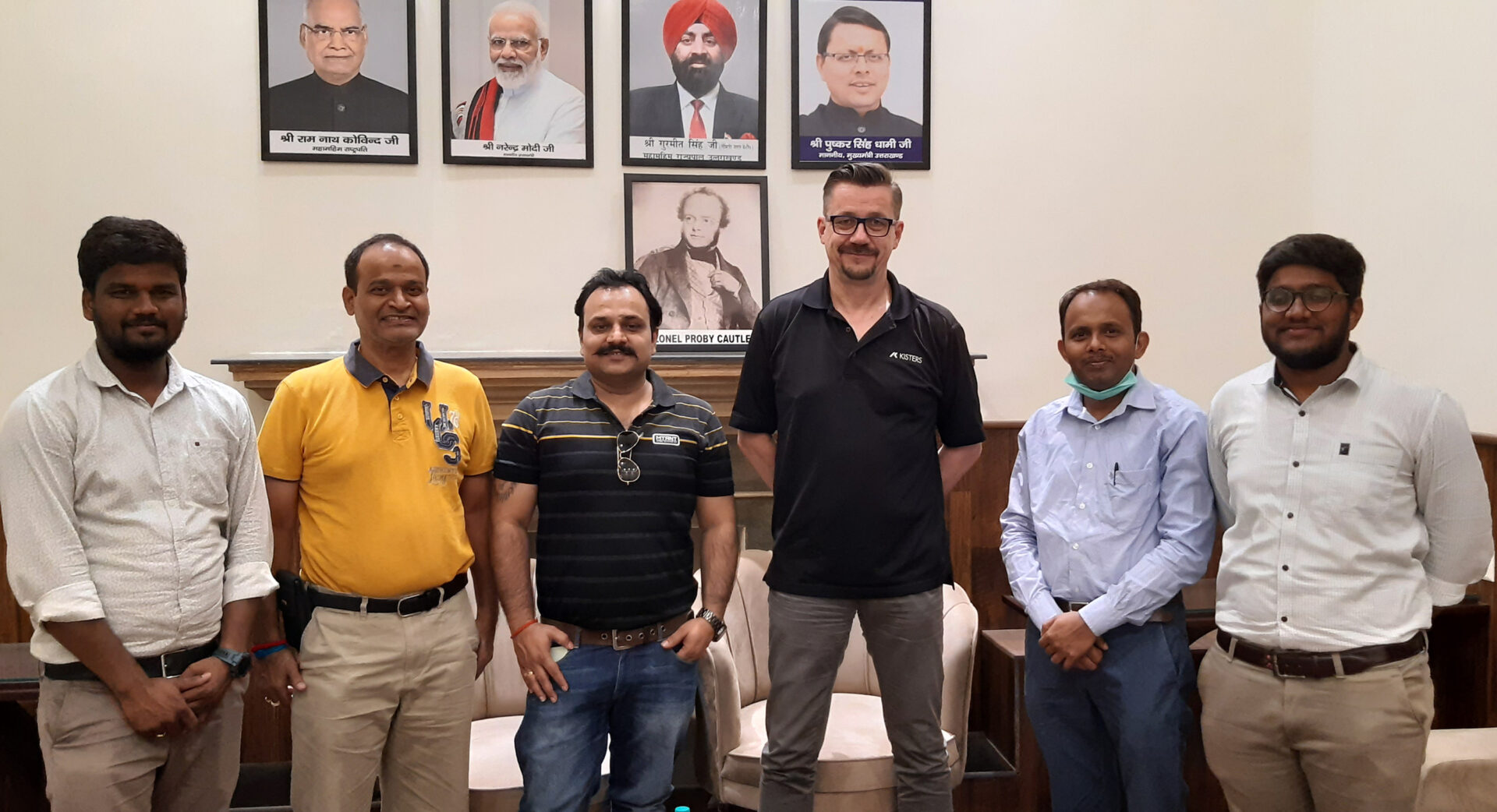
Client: Central Pollution Control Board (CPCB), India
Contractor: KISTERS AG
Sub-contractor: SGS Weather and Environment, Delhi
Project period: 01.2022 – 04.2027
In the bustling heart of India, where the sacred River Ganga flows, a groundbreaking project is underway to safeguard the water quality of this iconic water body. Initiated by the Central Pollution Control Board (CPCB), Delhi, and carried out in collaboration with KISTERS and SGS Weather and Environment, Delhi, this initiative marks a pivotal moment in real-time water quality monitoring.
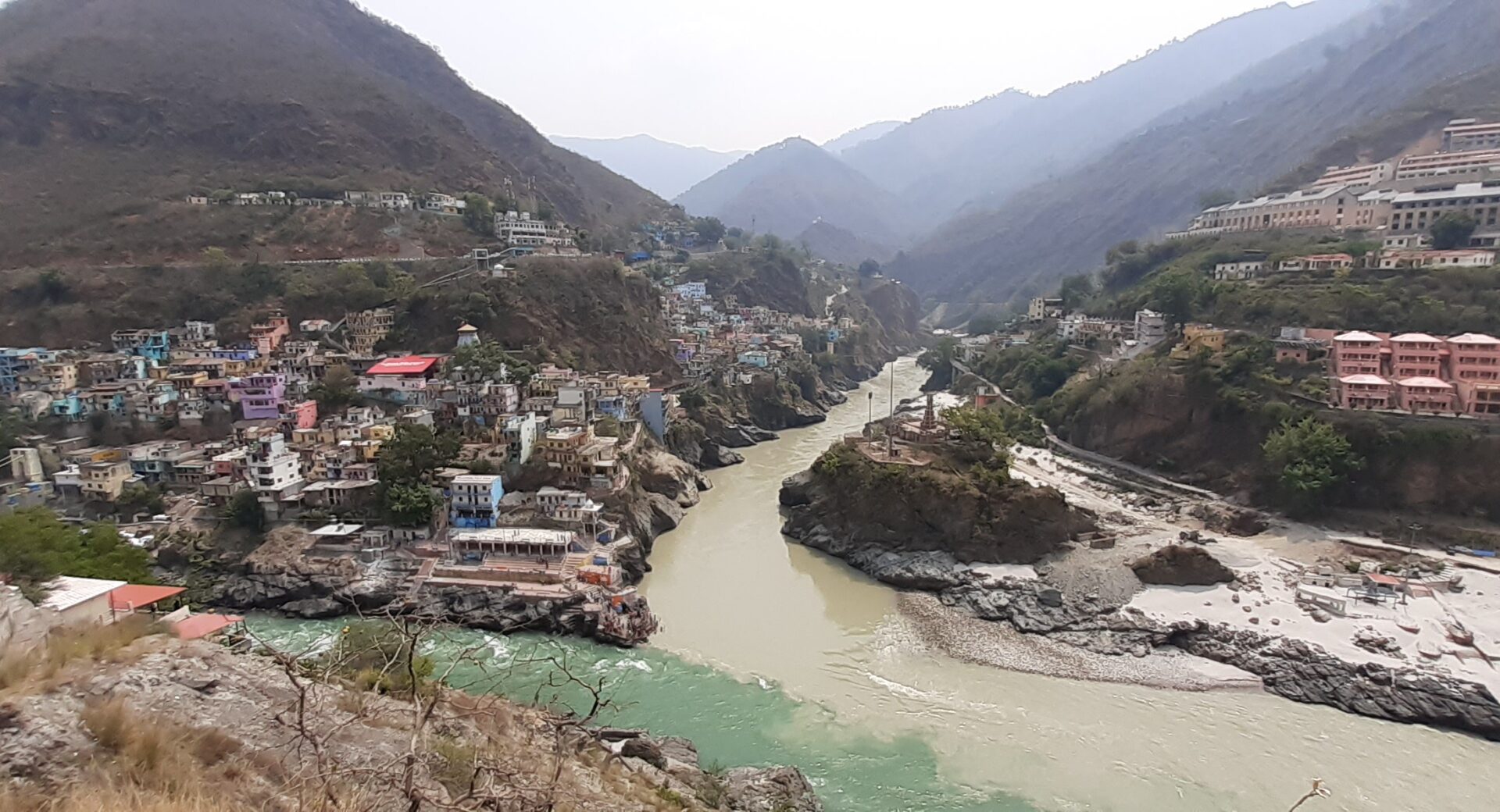
- Project Overview
- Background
- Objectives and tasks
- The tasks and responsibilities
- The solution
- Summary
Project Overview
The Central Pollution Control Board (CPCB), Delhi, enlisted the expertise of KISTERS and SGS Weather and Environment, Delhi, to develop a validation system for water quality data from 40 real-time water quality monitoring stations (RTWQMS) along the Ganga and its tributaries. These stations are managed by a third party, the Data Service Provider (DSP), and provide hourly data critical for assessing the health of the river and its ecosystem.
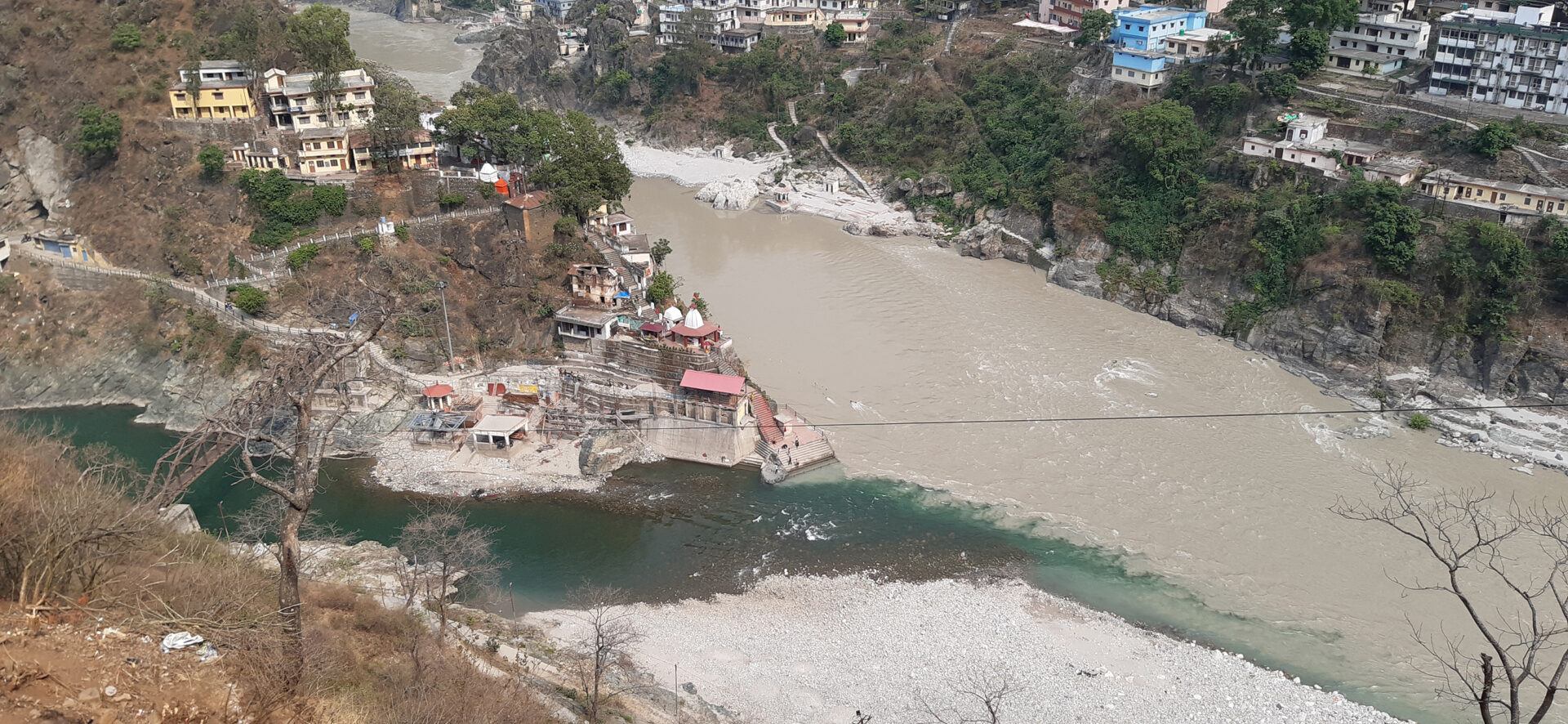
Background
The project is part of the National Ganga River Basin Project, which highlights the significance of monitoring and improving water quality in response to the challenges posed by rapid urbanisation and industrialisation. The Ganga, revered for its cultural and ecological importance, serves as a lifeline for millions of people. Validation of data from these monitoring stations is critical to the efficiency of water quality assessment and management efforts in the region.
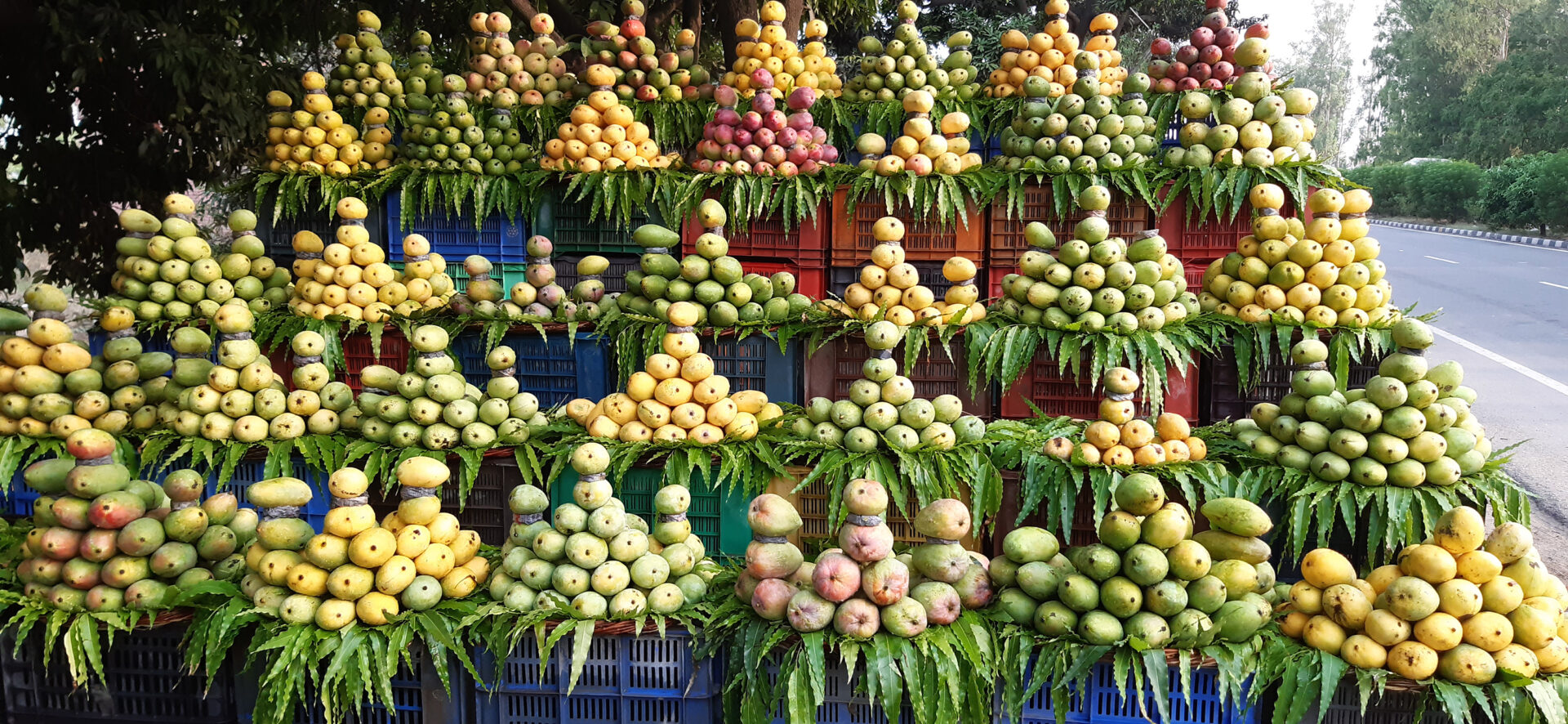
Objectives and tasks
In short, the objectives of the project are multifaceted, ranging from the operational efficiency of monitoring tools to the timely collection and validation of data Through careful field inspections and adherence to standard protocols, the project aims to maintain the integrity and reliability of the data collected.
In detail, they are:
- To verify that instruments and/or equipment are operational to produce reliable monitoring data on a consistent basis
- Calibrate instruments/equipment and verify that instruments are set up according to calibration SOPs
- Verify that instruments/equipment are maintained in accordance with Standard Management Practices (SMP)
- Verify timeliness of data collection (logging)
- Check the representativeness of measurements
- Check the real-time data stream for missing data and/or artefacts
- Preparation of supporting documentation and submission of comments to the CPCB to meet the objectives of the tasks
- Develop and operate a data management system and derive statistics as trend analysis for a range of water quality indicators/parameters
- Develop and operate a dashboard for public dissemination of information
The tasks and responsibilities
Our tasks and responsibilities include the verification of water quality data, regular field visits to monitoring stations and the development of robust reporting mechanisms.
In detail, they are:
- Review the water quality data provided by the DSP and qualify the data based on a set of pre-defined qualification rules agreed between the CPCB and the DSP
- Regularly visit each monitoring station along with the DSP using mobile software to record the results of the field visits and use the results to qualify the data
- Maintain and store the submitted data in real time so that the information can be processed, tagged and qualified for payment
- Develop data qualification reports on an hourly, daily, monthly, quarterly and annual basis
- Develop a web platform for internal publication of measurement results, data qualification and reports
- Development of a dashboard for external publication of current measurement results in public buildings along the corridor
So, to accomplish these tasks and objectives, we needed a system specifically designed to meet the needs of water quality management, provide reliability and facilitate streamlined processes.
The solution
Central to the project is the use of the KISTERS WISKI software system, specifically designed to meet the needs of water quality management. This comprehensive solution incorporates advanced technologies, including the WISKI validation module and Python scripting, which significantly improve the efficiency and accuracy of data qualification processes. By making WISKI the core solution for this project, we were able to achieve seamless operations throughout the project lifecycle, from data management to validation, analysis and reporting.
In addition, WISKI enables us to develop customised reports and web platforms that facilitate effective access and interpretation of monitoring data by both internal and external stakeholders. The integration of a user-friendly dashboard enhances transparency by providing real-time updates on water quality parameters, providing stakeholders with timely and actionable insights – which is an important element of this project CPCB needed.
Summary
While the project is in its operational phase, the collaboration between CPCB, KISTERS and SGS Weather and Environment continues to yield promising results. With an unwavering commitment to excellence and innovation, the team remains dedicated to improving water quality monitoring along the Ganga.
Looking ahead, the project has immense potential to serve as a model for sustainable water management initiatives across India. By harnessing the power of technology and collaboration, we are embarking on a journey towards a cleaner, healthier Ganga, ensuring its vitality for generations to come.
As the project progresses, we remain steadfast in our commitment to achieving our goals and delivering tangible results. Together, we navigate the currents of progress, driven by our shared vision of a brighter, more sustainable future for the Ganga and its communities.